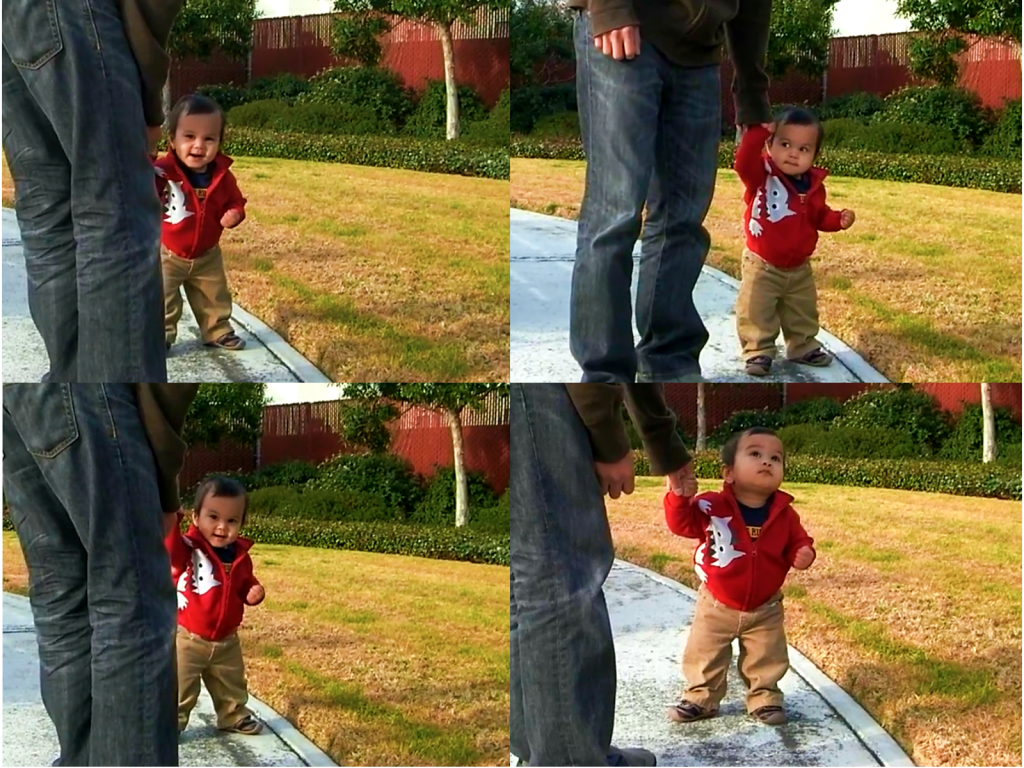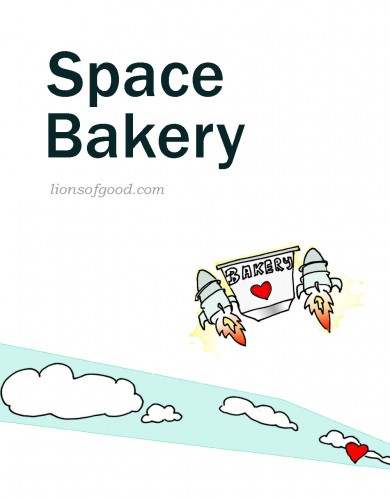
"It's the simple things in life that are the most extraordinary"
We celebrated our son’s first birthday the other day. We invited a bunch of his little friends and signed up for a place to host the party that had all kinds of fun toys, contraptions and activities. When I arrived, I struggled to get a tower of balloons we bought him through the front door, and after I got in I didn’t know what to do with them so I just released them and let them float around the room.
His friends and smiling parents arrived one by one. The place came with a host who marshaled us through activities, swings, rides, trampolines, singing and cake, but through all the excitement, Joshua only wanted to do two things: 1) sit in the ball pit and throw balls at me and giggle, and 2) hold my finger and lead me around the room to practice walking.
It’s been a few months since that birthday party, and those 2 things are the only things I remember (or care to remember) of that day. If that business doing birthdays thinks for one second that what I was paying for was the room, balloons, trampoline, ball pit or the annoying party host, they are horribly mistaken. I couldn’t care less about any of that… and there’s a point here about what people really care about.
In the movie Eternal Sunshine of the Spotless Mind, Joel (played by Jim Carrey) undergoes a procedure to erase memories of his ex-girlfriend Clementine (Kate Winslet). As some of the more cherished memories begin to surface (only to be expunged) Joel becomes frantic not to lose any more of them, particularly after a lovely, loving reminder of a most intimate moment: of lying under a blanket with Clementine as she revealed her true, vulnerable self by recounting memories of her unhappy childhood, including an ugly doll she had which she named ‘Clementine.’ Joel was overcome with love for Clementine at that moment, and in his memory he experiences anew that love, that deep sweetness, and he whispers in his remembering, “Please let me keep this one… this one memory.”
“I could die right now, Clem. I'm just... happy. I've never felt that before. I'm just exactly where I want to be.”
The memory erasing procedure persists, however, and the flood of now wonderful memories washes over Joel like a chilling stream and awakens within him all that he had loved about Clementine, and all the sensations and emotions that had invigorated him and made his life whole, and as he desperately attempts to retain those memories, the more rapidly they are eliminated.
His single moment of perfect happiness with Clementine was during their first evening on the frozen Charles River in Boston: Joel tells her, “I could die right now, Clem. I’m just… happy. I’ve never felt that before. I’m just exactly where I want to be.” Surprised at his own joy, it drives him to spend the rest of the movie desperately trying to save Clementine from the process and prevent her from being obliterated from his memory, and from him, forever.
Ever found yourself in a simple moment so perfect, nothing else mattered? Good. Hold that thought.
Now whoever said “the best things in life are free” is a myopic fool. The best things in life are not free. On the contrary, the best things are often expensive, and worth every penny.
Someone might say, “I took my kid to the zoo and we had a great time, and it hardly cost me a dime.” Maybe so, but consider this: the fact that you’re able to take your kid to the zoo meant that you had free time.
Time is a luxury that money buys. It takes money to buy freedom and free time to do things like go to the zoo, spend time with your kids, etc… and Time is the most valuable, rarest, scarcest resource of all.
A more accurate statement is:
The best things in life aren’t things.
Back to my son’s birthday party: What money bought me was time: I didn’t have to run around to set things up or organize the entertainment for the guests. Money bought me the time to experience a few intimate (and uninterrupted) moments with my son on his first birthday, even if all he did was throw balls at me or walk around with my pinky in his hand.
And that’s what you must aspire to deliver in your business.
Find out precisely what your ideal customers really crave that no one else is giving them. Then give it to them.
It’s not about a product or service — deliver exceptional experiences; be the objects of their ultimate desire; give them memories they cherish and stories to tell their grandchildren; and satisfy their fantasies–
Be an agent of happiness.
You know you’ve really succeeded when someone later says, “I can die happy now.”





Add your comment: